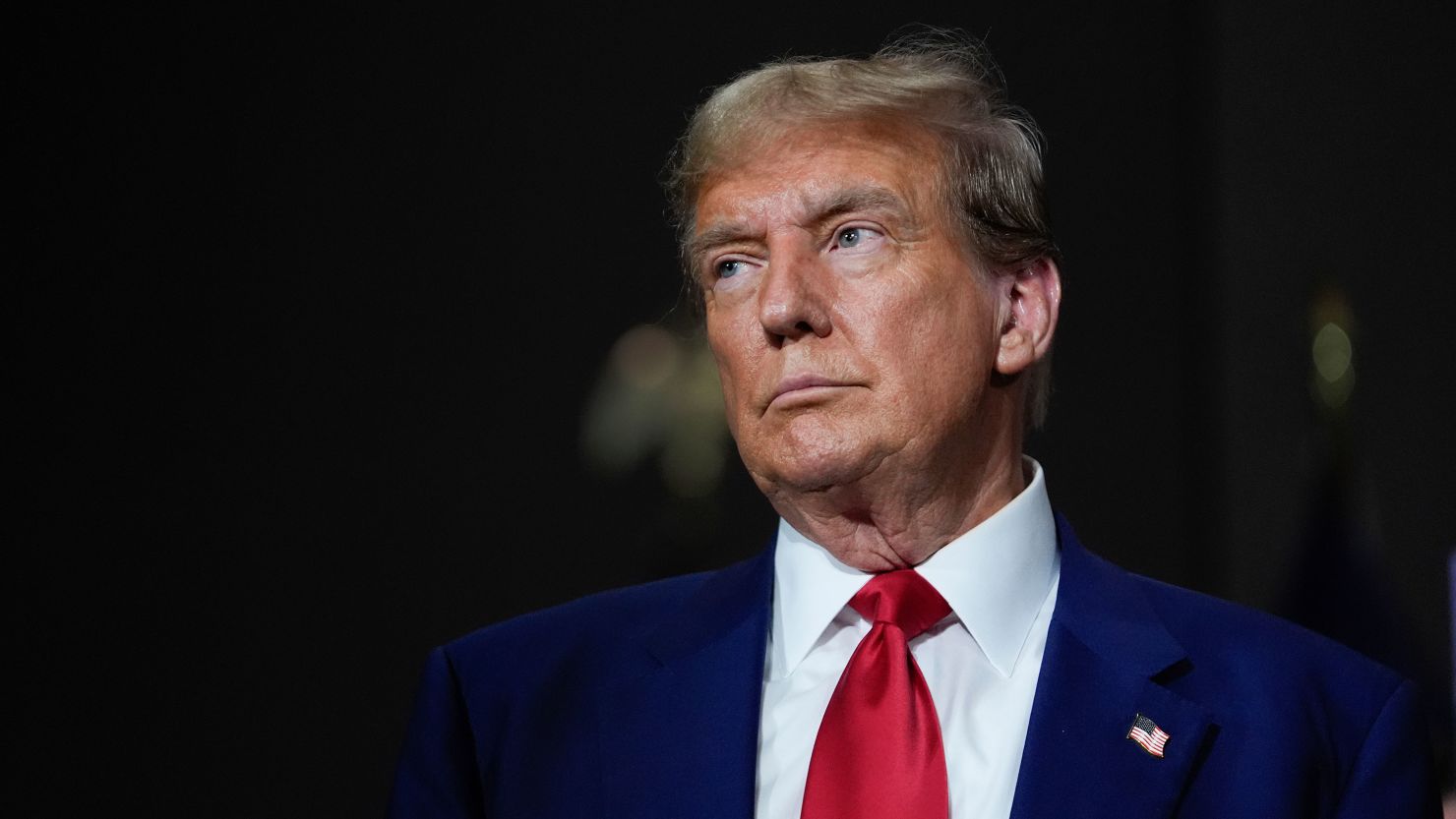Editor’s Note: Michael Conway was counsel for the House Judiciary Committee in the impeachment inquiry of President Richard Nixon in 1974. He is a graduate of Yale Law School, a fellow of the American College of Trial Lawyers and a retired Illinois attorney. The opinions expressed in this commentary are his own. View more opinion on CNN.
A New York appellate court on Tuesday refused to delay former President Donald Trump’s first criminal trial because he objects to the gag order that’s been imposed on him by the trial judge, Juan Merchan. While the appellate decision on the merits of the gag rule won’t come until later this month, it’s good that Trump’s objection to its imposition won’t delay the start of the trial — especially since his objection is so unfounded.

In the trial due to start Monday, a jury will consider 34 felony counts against Trump for falsifying New York business records to conceal $130,000 in hush money payments to adult film star Stormy Daniels shortly before the 2016 election. Trump has denied the charges.
Trump claims his right to free speech is violated by the gag rulings. The first one imposed in the case was expanded in a second decision, and he is now prohibited from making personal attacks on court staff, prosecutors, witnesses and their families that would materially interfere with their work on the case, as well as making any statement whatsoever about prospective or actual jurors.
As a former journalist and retired media lawyer, I am sympathetic to arguments on behalf of First Amendment rights and believe in a wide berth for even distressing comments to protect the freedom of expression of all Americans. But statements that could contaminate jury selection, cause witnesses to fear retribution for testifying truthfully or otherwise undermine the Sixth Amendment guarantee of a fair trial in no way qualify for First Amendment protection.
In other words, the First Amendment protects unpopular, even despicable speech and generally allows a citizen to be a jerk. But it doesn’t countenance calls for violence, intimidation of witnesses, jurors and lawyers or disruption of judicial proceedings. Indeed, if Trump attacks those who may testify in his impending New York criminal trial, he not only would violate the gag order but could expose himself to charges of witness tampering.
In rejecting Trump’s contention that the gag orders violate his First Amendment rights, Merchan pointed to Trump’s social media posts. He ruled, “It is no longer just a mere possibility or a reasonable likelihood that there exists a threat to the integrity of the judicial proceedings. The threat is very real.”
The court concluded that Trump’s posts would lead those involved in the trial to believe that “they should worry not only for themselves, but for their loved ones as well.” Merchan wrote, “Such concerns will undoubtedly interfere with the fair administration of justice and constitute a direct attack on the Rule of Law itself.”
Indeed, if Trump’s harangues could affect the willingness of a witness to appear or alter the witness’s testimony or cause court personnel or prosecutors to fear retribution for their role in the criminal trial, that crosses the line from permissible speech to sabotaging the administration of justice.
Merchan’s decision to impose a gag rule is also consist with precedent more than half a century old. The US Supreme Court ruled more than 55 years ago that judges should bar criminal defendants, criminal trial lawyers and court staff from making out-of-court comments which could interfere with the constitutional right of a fair jury trial.
The ruling came when determining that Dr. Sam Sheppard did not receive a fair trial when a jury convicted him of his wife’s 1954 murder. In that case, the Supreme Court decreed that the presiding judge should have imposed a ban on out-of-court statements by trial participants.
While concluding that a trial court could not censor the media’s news reports about Sheppard’s trial, which had created a circus-like atmosphere, the court said orders barring parties, court personnel and lawyers from speaking about the case are justified. In the Sheppard case, witnesses, prosecutors and defense lawyers made prejudicial out-of-court statements to journalists containing information never admitted as evidence at trial, including Sheppard’s refusal to take a lie detector test. This inaccurate or inadmissible information appeared in press reports.
By limiting the gag order to these groups who operate under the court’s authority, the Supreme Court left intact the media’s First Amendment right to attend the trial and freely report without judicial oversight while protecting the integrity of the trial.
Merchan was aware of the Sheppard opinion justifying his initial gag order, citing it in the ruling. And in the current era, the reach and therefore potential impact of Trump’s media presence is gigantic.
As such, the threat to both potential witnesses and prospective jurors posed by Trump’s social media posts, campaign rally accusations and press conferences is massive and frightening. Trump’s platform is enormous: As of January 2023, Trump had more than 87 million followers on Twitter (now called X), 34 million on Facebook and 23 million on Instagram. And he is unrepentant; his extreme rhetoric has continued unabated.
The Manhattan district attorney prosecuting this case, Alvin Bragg, wrote in a motion seeking the gag order that “multiple potential witnesses have already expressed grave concerns … about their own safety and that of their family members should they appear as witnesses against defendant.” And not just witnesses have cause to fear. When jury selection begins on Monday, don’t be surprised if many prospective jurors seek to be excused whether or not they say aloud that they are too afraid to serve (and even though their names will not be publicly disclosed).
The severity of Trump’s alleged misconduct should not be underestimated. A leading lawyers’ organization, the American College of Trial Lawyers, wrote that Trump’s statements about judges and prosecutors “puts our very democracy at risk. It should be universally condemned.”
That’s why Merchan’s gag order is indispensable.
Trump has put the justice system under severe strain by his unhinged rants. Merchan is doing all he can to keep the system from collapsing; let’s hope it’s enough.





